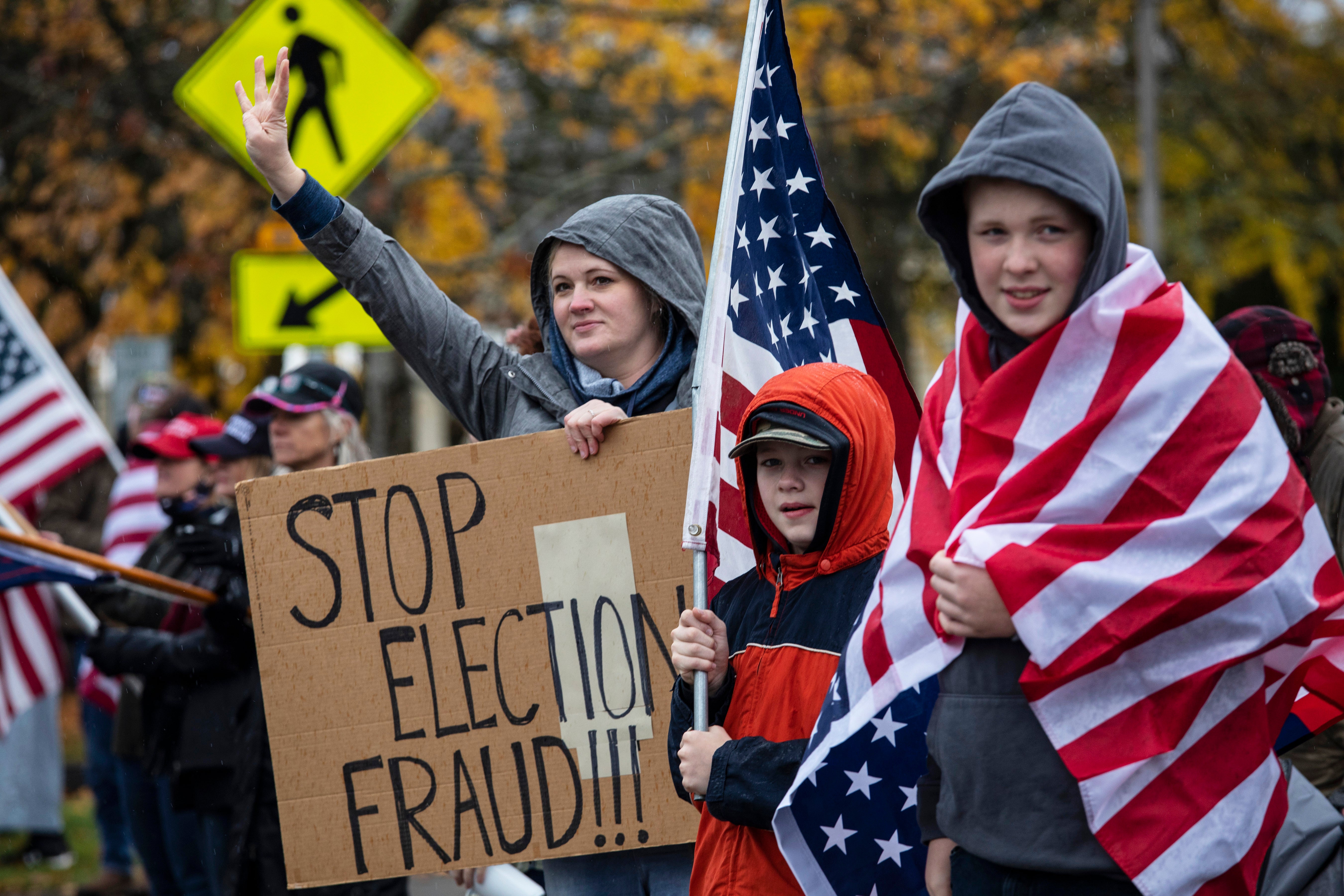Election officials say combating lies will be big challenge
Top election officials across the country are looking ahead to future elections and grappling with how they can counter a wave of lies and misinformation, after a 2020 election season dominated by conspiracy theories and false claims about voting

Your support helps us to tell the story
From reproductive rights to climate change to Big Tech, The Independent is on the ground when the story is developing. Whether it's investigating the financials of Elon Musk's pro-Trump PAC or producing our latest documentary, 'The A Word', which shines a light on the American women fighting for reproductive rights, we know how important it is to parse out the facts from the messaging.
At such a critical moment in US history, we need reporters on the ground. Your donation allows us to keep sending journalists to speak to both sides of the story.
The Independent is trusted by Americans across the entire political spectrum. And unlike many other quality news outlets, we choose not to lock Americans out of our reporting and analysis with paywalls. We believe quality journalism should be available to everyone, paid for by those who can afford it.
Your support makes all the difference.After an election season dominated by conspiracy theories and false claims about voting, top election officials across the country say they already are bracing for what comes next.
They are grappling with ways they can counter waves of misinformation in the 2022 midterms and beyond related to voting procedures and the accuracy of election results.
A major topic in virtual gatherings this week of the National Association of Secretaries of State and National Association of State Election Directors is how to deal with voters who have lost faith in elections because of the misinformation surrounding the 2020 presidential election.
“There are some folks who are never going to believe anything I say, and I’m not trying to convince those people otherwise,” Arizona Secretary of State Katie Hobbs said. “It’s unfortunate that is the case that we have now.”
Jared Dearing, executive director for the State Board of Elections in Kentucky, said people still contact his office believing the presidential election was rigged. Voter fraud is exceedingly rare and virtually impossible to be used to sway a federal election, given that elections are overseen by the states and run by counties or other local jurisdictions.
“One of the things we’re talking about inside our own circles is that we continue to have these phone calls with people just calling about all these conspiracy theories,” he said, adding that most of the callers cannot be convinced otherwise.
State and local election officials have said repeatedly the 2020 election was fair and secure despite claims by former President Donald Trump and his allies that the election was stolen. Courts have soundly rejected allegations made in numerous lawsuits, while election officials of both parties conducted audits verifying the vote. Trump's own attorney general at the time said there was no evidence of widespread fraud that would have changed the results.
The sheer number of false claims in 2020 and how they spread quickly across social media created major headaches for election officials, who had to counter the falsehoods at the same time they were trying to ensure a smooth presidential election during a deadly pandemic.
“They got all combined into one narrative ... into one large lie to try to undermine confidence in the election,” Matt Masterson, a former top official at the U.S. Cybersecurity and Infrastructure Security Agency, told election officials on Thursday.
Masterson encouraged election officials to continue efforts to counter the disinformation campaigns and not be discouraged by what happened last year.
“I know in the midst of this it felt like we did all this and no one listened to it,” he said. "But it’s really hard to track and understand how many people took it in and were dismissive of the claims from that point forward."
One question is how much this will fall on state and local election officials and what role the federal government will play in identifying and correcting election misinformation.
The U.S. Cybersecurity Infrastructure Security Agency, which is charged with helping protect election systems, launched a “Rumor Control” website last year to address the falsehoods in real time. One rumor it dispelled was a claim in Arizona that poll workers gave Sharpies to certain voters so their ballots would be rejected.
Whether that effort will continue for future elections is not clear. Agency officials said countering lies and misinformation is most effective at the state and local level, and they urged election officials to find trusted sources to help them spread their message.
A “heavy handed” approach can sometimes backfire and force people to recoil further into their personal information bubbles, said Bob Kolasky, assistant director of CISA’s National Risk Management Center.
“We don’t want to just be lecturing people that the things they believe are absolutely wrong without being somewhat empathetic to what they want to believe,” he said.
This week's meetings also included a discussion with representatives from the major social media companies. Election officials asked them to do a better job highlighting their work to counter misinformation.
The officials also spoke of the challenges in overseeing an election in which they were targeted for harassment by those who believed Trump's false claim that the election was stolen. Some said the threats and harassment are continuing, three months after Election Day.
Georgia's state election director, Chris Harvey, noted that he, his boss, Secretary of State Brad Raffensperger, and other officials in the office had all received threats.
As Trump was challenging the integrity of the vote in Georgia last year, a top official in the secretary of state’s office pleaded for the misinformation to stop and warned that someone would get hurt.
“In Georgia, we would have welcomed foreign interference — we had plenty of other interference and interest,” Harvey said.
___
Cassidy reported from Atlanta.